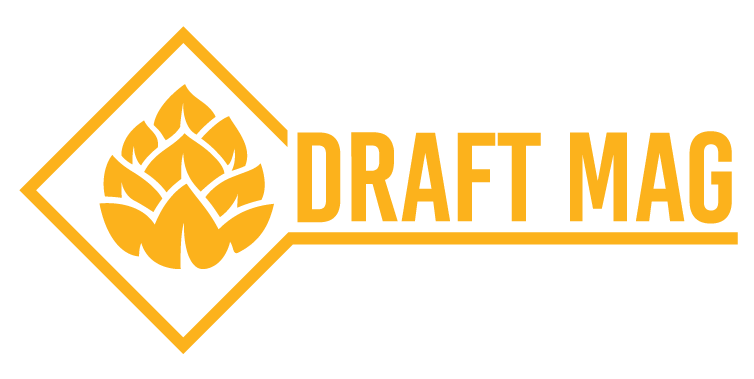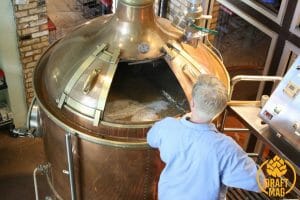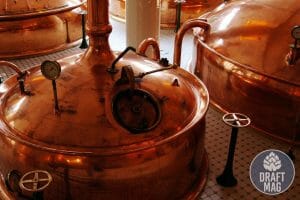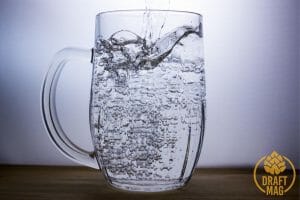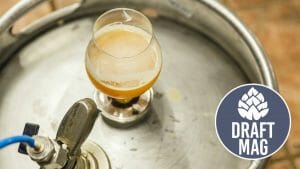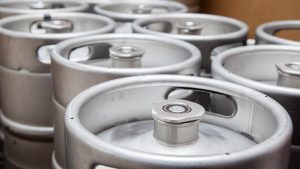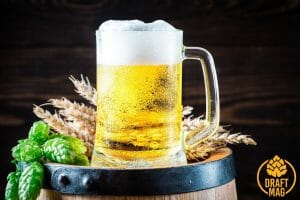Types of Water for Brewing Beer
Learn about the different types of water for brewing beer and how choosing the right one can elevate the taste of beer. This article is designed for beer enthusiasts, brewer master, or homebrewers.

Our Top Picks
🍺 Filtered water: Best water solution for homebrewing.
🍺 Distilled Water: No minerals, neutral pH level.
🍺 Tap water: Drinkable tap water suitable for brewing.
Though water wouldn’t top most people’s list for making beer flavorful and refreshing, it does make up 95% of it, and surprisingly, there are different types of water for brewing.
It takes 4 ingredients to make beer: water, barley, hops, and yeast, but the quality and type of water used in brewing significantly impact the beer’s final taste, highlighting the importance of selecting the best water.
From hard water to soft water and filtered water to spring water, each has unique properties and characteristics, which can enhance the beer’s overall flavor. With the rise in popularity of craft beer, more emphasis is being placed on the quality of the ingredients used in brewing, especially the type of water.
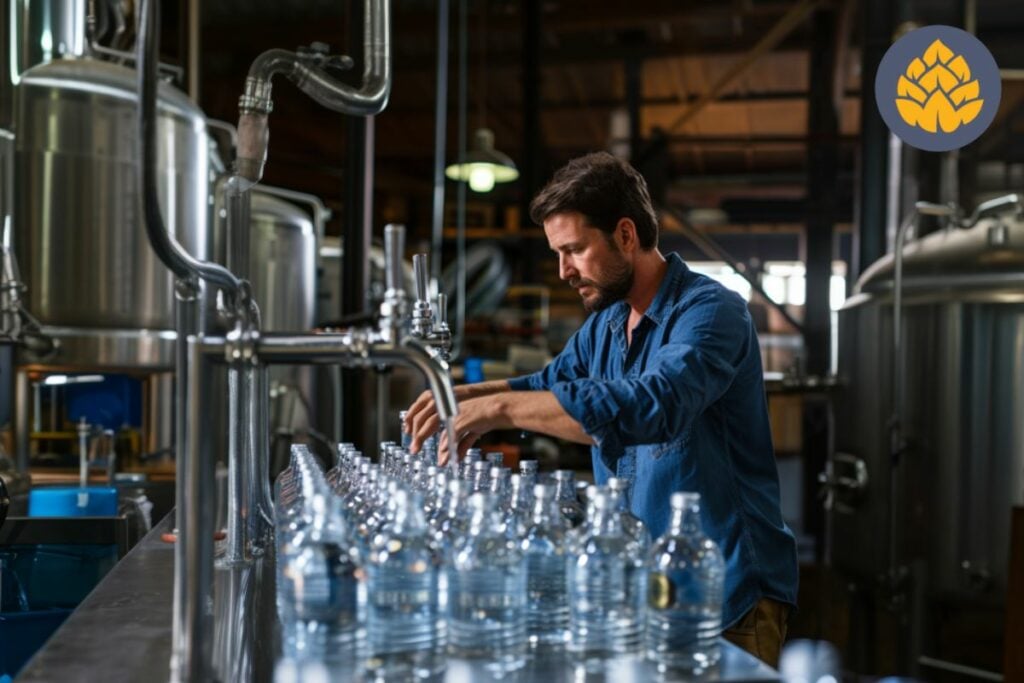
Best Water for Brewing Beer
Choosing the right water, whether you’re a pro or homebrewer, elevates your brew. Let’s see which one would work for you.
Hard water
Packed with minerals of calcium, magnesium, and zinc, hard water with a pH of around 8 is considered to be alkaline and produces darker beer profiles and hoppier flavors, such as Dunkels, Porters,High ABV Lagers and Stouts. The minerals in hard water bring out the bitterness of the malts and produce a richer fuller mouthfeel, which can be noticed in beers like Guinness, Warsteiner Dunkel, and Baltic Porter.
Some regions of America, Ireland, and Eastern Europe, like Germany and Poland, are considered alkaline-rich hard water regions and produce some of the best dark beers on the planet.
Soft water
Soft water is the opposite of hard water and has fewer to zero minerals, giving it a more acidic taste and a lower PH of around 6. This type of water is the most popular for brewing beers, such as different IPAs, Lagers, and Pilsners.
Brewing in soft water regions will give your beer a clear, light color and a slightly sweet, crisp mouthfeel and allow more flavors like citrus fruits, herbs, flowers and spices to shine. Think of Konig Pilsener, Frio Lager, or Dirty Myrtle IPA.
Tap water
Many home brewers begin their brewing journey with tap water, which is an acceptable starting point, although it may require adjustments using brewing salts like Calcium Carbonate (CaCO3), Calcium Sulfate (CaSO4) and several more depending on your local water readings.
Tap water can contain chlorine or chloramine, and depending on the location and source of the water, brewing the same beer style in two different locations using tap water could result in two distinctly different-tasting beers.
Thus, treating the tap water is required through boiling and filtration systems to ensure consistency.
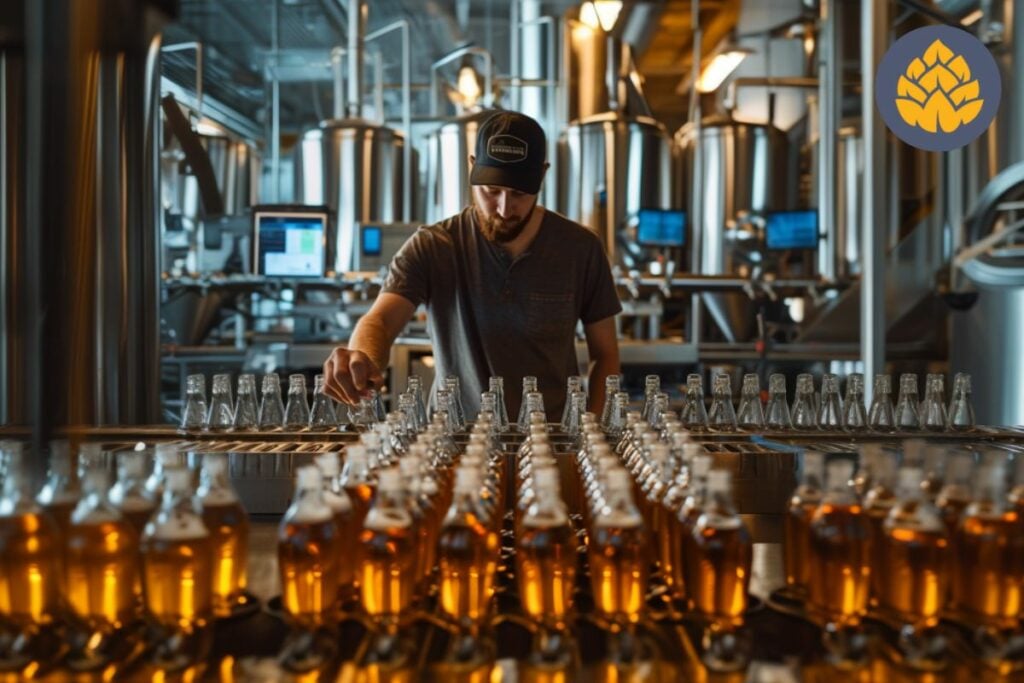
Filtered water
Filtered water is by far the most common for brewers as it has the perfect balance between mineral richness and purity since the water has been passed through a device that removes impurities.
Brewers who use filtered water have more control over their brewing process as it allows them to choose and adjust the minerals and ingredients for the specific beer style their brewing.
Spring water
Spring water refers to water that has been sourced directly from a natural spring and then bottled. The mineral levels can vary from spring to spring, so choosing the same bottled water company will have a consistent composition, which is why some brewers prefer bottled spring water for brewing.
It’s perfect for home brewing as it’s relatively inexpensive, and many grocery stores have dispensers where you can fill up 5-gallon containers.
Distilled Water
While spring water can be a good choice due to its purity, it is still susceptible to variations depending on its specific source.
Distilled water or reverse osmosis water, on the other hand, provides a blank canvas from which to work, as all minerals and impurities are removed from the water through boiling and condensing it back into liquid form, allowing you to add minerals back in specific proportions to tailor the water to the beer style you want to brew.
Though many brewers say that using distilled water is not suitable for brewing due to removing the necessary minerals and nutrients needed for yeast fermentation, in some cases on a homebrew scale, it’s fine! For example, the use of malt extract in the brewing process will provide the nutrients and minerals needed for the yeast to work.
Frequently Ask Questions
How can I tell if my tap water is hard or soft for brewing purposes?
To find out tap water hardness, you can use a water hardness test kit. These test kits are easy to use and are readily available in most home improvement or online stores that will tell you the PH level of your water.
Can I use regular tap water for brewing?
Yes, regular tap water can be used for brewing. However, the quality and taste of the beer can be impacted by the minerals and chemicals found in tap water, so it may require certain treatments like boiling or filtration to improve its brewing quality.
How can I know the mineral content of my brewing water?
There are professional water testing services available for brewers, which give you a detailed analysis of your water’s mineral content. Alternatively, if you’re using tap water, your water supplier will often be able to provide you with a water report.
Related Water in Beer Articles
Learn more about water in beers reading these related detailed articles below.
Wrapping up
As you can see from the different types of water, brewing beer isn’t as straightforward as one would think. Choosing the right water type will depend on the brew style you plan on brewing. We’d love to hear about your experiences with using different types of water for brewing – did you notice any difference in taste and quality?
